Derrick Wright, The Battle for Iwo Jima. Written by a British author the book does a serviceable job of explaining the battle for Iwo Jima in a writing style that is both fresh and succinct (the volume itself is best described as “slim”). Though well written I was disappointed that the author did not cover in greater depth or at the very least acknowledge the background to the initiation of operation Detachment. The author somewhat uncritically accepts the conventional (B-29 bomber deployment) argument for the operation without exploring the inter-service debates and rivalries that went on behind the scenes (which see Robert S. Burrell, ‘Breaking the Cycle of Iwo Jima Mythology: A Strategic Study of Operation Detachment’), The Journal of Military History, Vol. 68, No. 4, Oct. 2004). I also would have liked to have had more information on the Japanese side. However, as the author expressly states that his intention is to examine the US angle this can be forgiven. The narrative contains many firsthand accounts of the battle and includes, much to the author’s credit, chapters that cover the “forgotten” heroes; the Corpsmen and Seabees. The historical narrative itself is structured chronologically and, after a brief background assessment, follows the entire operation from D-Day to D+36. I would, however, like to know of any English language books that do cover the Japanese side in depth during the final stages of the war and would appreciate the members of the SWC pointing the way to them especially if they are better than the even slimmer and, on the whole, less than satisfactory volume below.
Patrick Hennessey, The Junior Officers’ Reading Club: Killing Time and Fighting Wars. There is something remarkably unsatisfying about this book; though, I am certain his friends will enjoy it immensely. To be fair one learns an awful lot about life at Sandhurst, about regimental life in general and about the culture junior officers are socialised into but it still reads much less like a memoir of war and more like a cleverly marketed and pitched faux-memoir/diary for the iPod generation. Some may find that tone and style refreshing but I for one found it self-indulgent with a whiff of the flippant. The author is apparently now reading to become a lawyer and his book reads very much like a publicity exercise in preparation for a life of (self-)importance.
Mathew Parker, Monte Cassino: The Story of the Hardest Fought Battle of World War II. While I would dispute the latter half of the title (there are surely other battles that are just as deserving of the title “hardest fought battle”, especially in WWII) I cannot dispute the unique conditions, hardships and challenges that the Italian campaign imposed on the multi-national combatants. Combining military history with oral history the book reads much like Max Hastings’ Overlord. The author examines the inter-allied squabbles, often petty but serious nonetheless, regarding Allied strategy, courses of action, allocation of objectives and directions of advance while dispelling many myths (i.e., regarding the supposed proclivity of North African soldiers to rape and loot) and revealing much that has since faded from memory in the process. He also does a great service to the forces of countries usually under-appreciated in more general works on WWII war such as the Free French whose North African forces provided sterling service and whose metropolitan French officers suffered inordinately higher casualties than some of the Allied other units; the Poles; South Africans, Indians, Kiwis/New Zealanders, Aussies and Canadians (ANZAC). Indeed, for the Free French and the Poles the Italian Campaign held much greater import politically than it did militarily as both sides fought for their respective nation’s honour and for the right to determine their nation’s status in post-Nazi Europe.
Quite.[A German propaganda leaflet berates similar Allied Psyops efforts]: “Those of you who are lucky enough to get out of this inferno of Cassino will always remember the German parachutists, the most ferocious of them all. Yet just imagine, some greasy, slick-haired guy sitting safely way back of you tries to soften us with leaflets, asking us to wave a white handkerchief. Let this guy come to the front and find out that the paper with his trash on it is just good enough to the wipe the arse with. On second thoughts, let him continue sending his leaflets – toilet paper is becoming rare at Cassino, and tough as they are, even German parachutists don’t like using grass”. (p. 276)


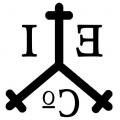

 so the more references in it, the better.
so the more references in it, the better.



 ). #1 assumes certain groups of people want to be British; IMO that's not the case, if it was we wouldn't have the parallel societies that we do (which aren't just Muslim phenomena) given the amount of money that's been wasted (IMO) in community schemes (but then again that was
). #1 assumes certain groups of people want to be British; IMO that's not the case, if it was we wouldn't have the parallel societies that we do (which aren't just Muslim phenomena) given the amount of money that's been wasted (IMO) in community schemes (but then again that was 
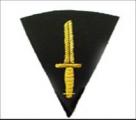
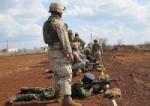
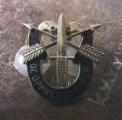
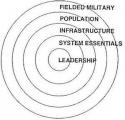


Bookmarks